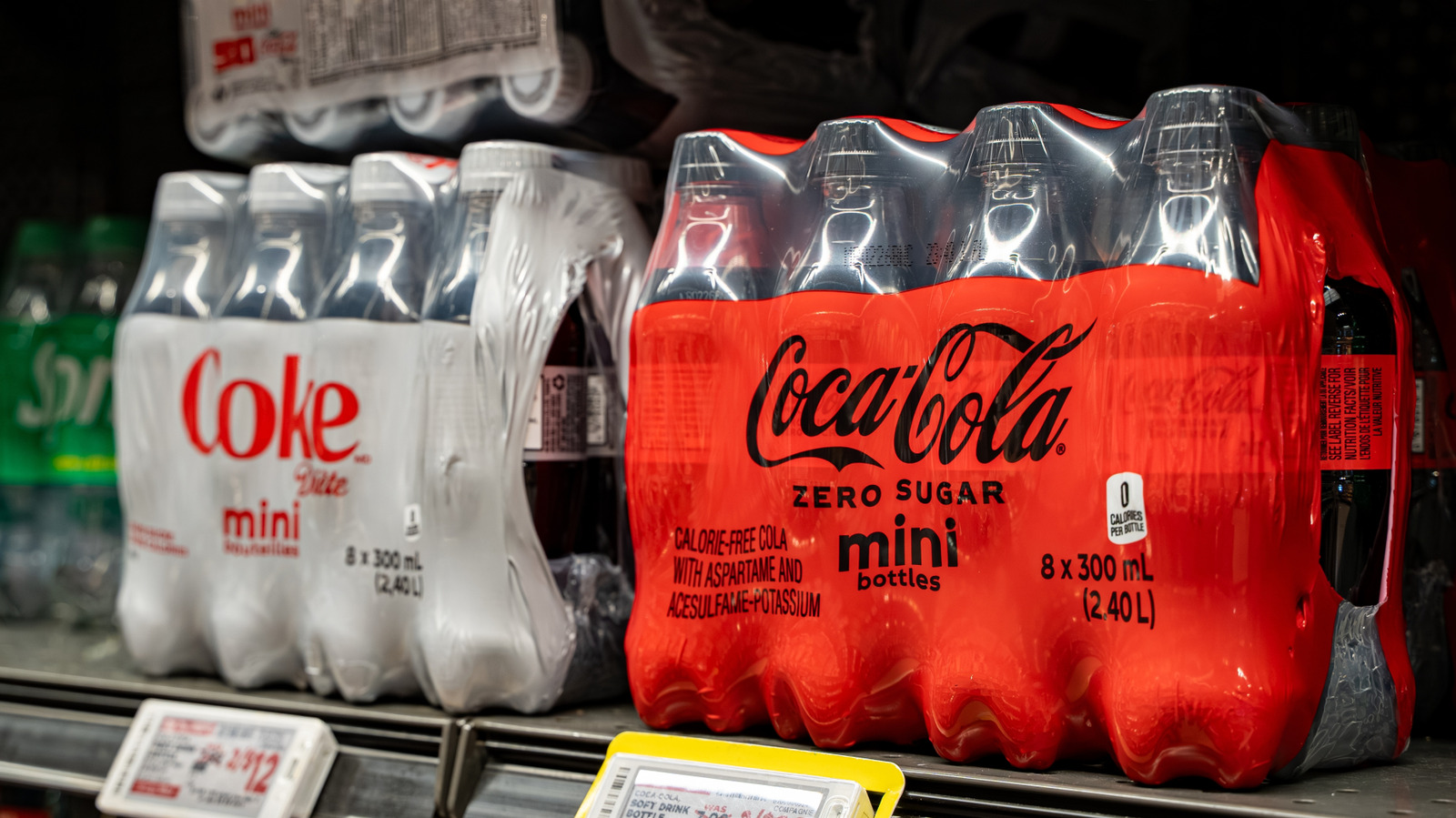
"All it takes is one taste to notice the difference between Coca-Cola Zero Sugar and Diet Coke. Even though both are sugar-free versions of Coca-Cola, the formulations are distinct and offer different flavor profiles. Coca-Cola Zero Sugar uses the same flavorings as regular Coca-Cola, and is sweetened with aspartame and acesulfame potassium. Diet Coke only uses aspartame. As a result, the zero sugar version tastes more like the original sugar-sweetened kind."
"In the packaging alone, there was a distinct difference between Diet Coke and Coke Zero, which was later branded as Coca-Cola Zero Sugar. Coke Zero was sold in a black can at its launch in 2005, with the Coca-Cola name in red. Diet Coke has long been sold in a silver can. Pepsi followed suit by introducing Pepsi Max in a black can while Diet Pepsi is sold in silver cans."
"According to the Cowan design agency which developed Coke Zero packaging, the silver and white of Diet Coke was seen as light and appealing to women. Black was chosen for Coke Zero to represent "strength, boldness, and modernity." When Coke Zero launched, it was immediately popular. Coke Zero was then marketed through sponsorships with NASCAR and James Bond movies. The male-centric marketing worked."
Zero-sugar sodas and diet sodas use different formulations, creating distinct flavor profiles. Coca-Cola Zero Sugar uses the same flavorings as regular Coca-Cola and is sweetened with aspartame plus acesulfame potassium, while Diet Coke uses only aspartame, making the zero-sugar version taste closer to the original. Pepsi mirrored this approach with Pepsi Zero Sugar and Diet Pepsi. Packaging and early branding emphasized gendered appeals: Diet Coke used silver and white to attract women, while Coke Zero used black to convey strength and modernity. Coke Zero received male-focused marketing, including NASCAR and James Bond sponsorships. Diet soda origins trace to a Brooklyn sanitarium where Hyman Kirsch created sweetened carbonated beverages.
#coca-cola-zero-sugar #diet-coke #sweeteners-aspartame-acesulfame-potassium #packaging-and-gendered-marketing
Read at Tasting Table
Unable to calculate read time
Collection
[
|
...
]